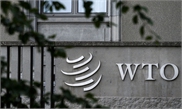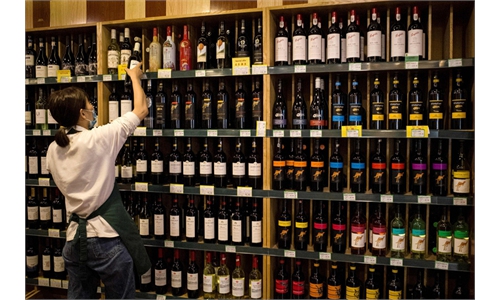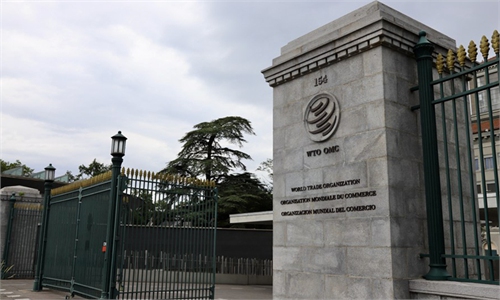China 'has fulfilled' WTO obligations
Unreasonable criticism, requirements politically motivated, unacceptable: Minister of Commerce
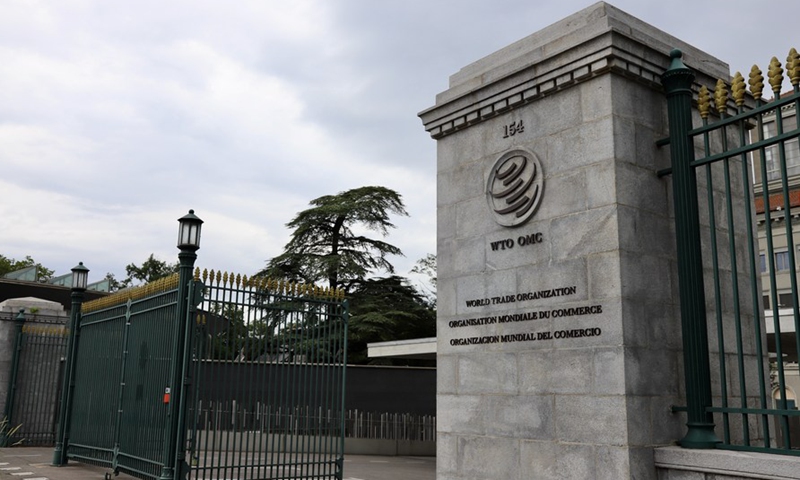
Photo taken on July 15, 2020 shows an exterior view of the World Trade Organization (WTO) headquarters in Geneva, Switzerland. (Photo by Li Ye/Xinhua)
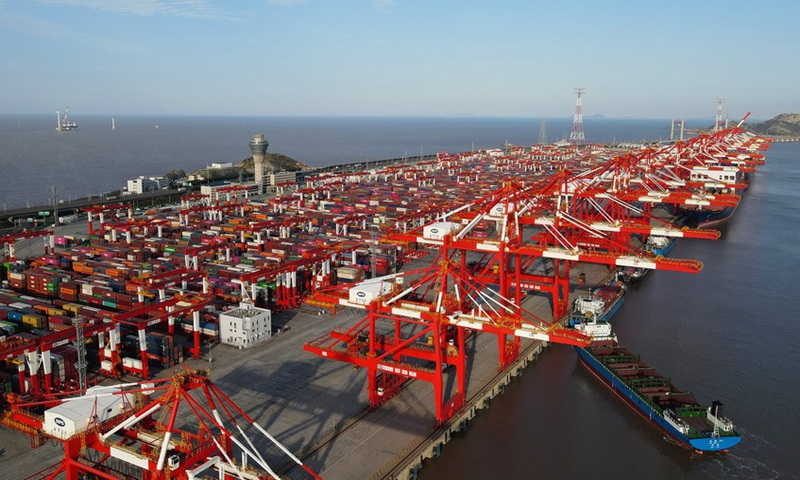
Aerial photo taken on April 6, 2021 shows a view of the automated container terminal of Shanghai's Yangshan Port, east China.(Photo: Xinhua)
China should not assume responsibilities outside its commitments to the World Trade Organization (WTO), Chinese officials and WTO experts said on Thursday, noting that China acknowledges concerns raised by some of its trading partners and will further open up its economy to the world.
China will take seriously questions, complaints, and even criticism raised by other WTO members, but will not accept criticism based on expectations or requirements beyond the WTO provisions, as such criticism is unreasonable and unfair, China's Vice Minister of Commerce Wang Shouwen said at a press conference on Thursday.
China has already fulfilled its obligations under the WTO, and has also delivered its commitments, which has been broadly affirmed and recognized by several WTO directors-general and most WTO members, Wang said.
The press conference was held to address media concerns on the latest WTO policy review in late October of China as a member. A number of WTO members including the US, the EU, Australia, Japan and India reportedly confronted China with issues of what they consider as "unfair" trade practices by China, market access and distortion.
"Some WTO members raised concerns or expectations in some areas, which may have exceeded WTO regulations. It is inappropriate for them to say that China has not fulfilled WTO obligations based on their expectations beyond WTO," said Wang.
For example, in terms of intellectual property protection, there is a big difference between the provisions of the WTO's IP agreement and the provisions of some free trade agreements. It would be inappropriate if the WTO requires China to implement IP protection provisions of some high-standard free trade agreements, Wang noted.
Some WTO members also expressed their hope that China further widens its market access, which is understandable, but Wang said "it is unreasonable, unfair and unacceptable to accuse China of not having fulfilled WTO rules."
Chinese analysts said country representatives who are professional trade experts are trying to subdue China with non-WTO obligations because they want to use the WTO platform to exert pressure on China.
The WTO is being confronted with unprecedented challenges, with its dispute settlement function paralyzed largely due to US obstruction and a negotiation system in a difficult situation.
"It is another case of trade being politicized, and it shows that some trade experts are hijacked by the stance of their respective governments," Huo Jianguo, former president of the research institute of the Ministry of Commerce, told the Global Times on Thursday.
"It seems that countries like the US are letting out their anger toward the Chinese system at WTO," Huo said. "Double standards are also shown here as some developed countries that accused China of not abiding WTO rules outwardly ignore WTO rules themselves."
For instance, the US launched 301 investigations against Chinese products and imposed heavy tariffs later in an apparent case of trampling on the multilateral system heralded by the WTO, Huo said.
China became a member of WTO on December 11, 2001, and China is now the world's largest trading country and a major trading partner of over 120 economies.
A total of 65 representatives made comments and asked a record of 2,562 questions to China on video, which was 16 percent more than those for the seventh review three years ago, Wang said, who considers the latest review successful.
China's model role
One of the cornerstones of the WTO system is that developed countries like the US should abide by WTO rules and lead by example, analysts said, noting that part of the reason for the dilemma of the WTO is the US' selective stance on WTO rulings. China's attitude toward WTO rulings constitutes a stark contrast to that of the US, which has scarcely obeyed WTO rulings.
China has been playing a model role in rectifying its trade policies if any problems are found and in obeying WTO rulings, Tu Xinquan, dean of the China Institute for WTO Studies at the University of International Business and Economics in Beijing, told the Global Times on Thursday.
"China has strictly implemented the rulings on specific cases made by the WTO's dispute settlement mechanism even if such rulings are detrimental to China. As long as it is a WTO ruling, we will recognize and enforce it," Wang the vice minister said. He noted that there was so far no case in which the accusing party applied for retaliatory measures because China did not accept a WTO ruling.
Tu took Australia's complaint against Chinese wine duties in June as an example. China imposed in March anti-dumping duties of up to 218.4 percent on imported Australian wine.
The imposition of anti-dumping duties is a measure that China rarely used. On the contrary, Australia resorts to this measure frequently against Chinese imports, Tu said. "However, at the end of the dispute, China will honor WTO rulings."
Safeguarding multilateralism
Wang said China attaches great importance to the authority and effectiveness of the WTO and supports the world trade body to undergo necessary reforms and hold an open attitude on subsidy-related negotiations under the WTO.
Wang noted that the massive agricultural subsidies by certain developed countries seriously distorted the international agricultural trade.
One unidentified country subsidizes over 65 percent of the value of sugar and 280 percent of the value of cotton, according to Wang. "Current WTO rules that allowed these practices are very unfair."
During the latest review, 65 WTO member representatives gave positive comments about China's trade policy.
Countries like Russia, Saudi Arabia, the Philippines, Vietnam, and Pakistan praised China's trade policy and its support of a multilateral trading system, according to a Xinhua News Agency report on October 21.
Aside from recognizing and obeying WTO rulings, analysts said, China has been attaching importance to WTO's reform and supporting the return of normal operations of the Appellate Body, an essential part of the WTO Dispute Settlement System that became defunct due to the US' blockage.
Further opening up
Wang said China is willing to provide greater market access to foreign companies and is now working toward that aim through bilateral investment deals, given that negotiations at WTO could not proceed.
The bilateral investment treaty that used to be under negotiation between China and the US as well as the Comprehensive Agreement on Investment between China and the EU were efforts in this direction.
Negotiations on CAI have concluded and the deal needs ratification. China's recent application to join the Comprehensive and Progressive Agreement for Trans-Pacific Partnership (CPTPP) also shows that China is willing to further expand its market access to foreign investors by joining such high-standard investment agreements, Wang said.


